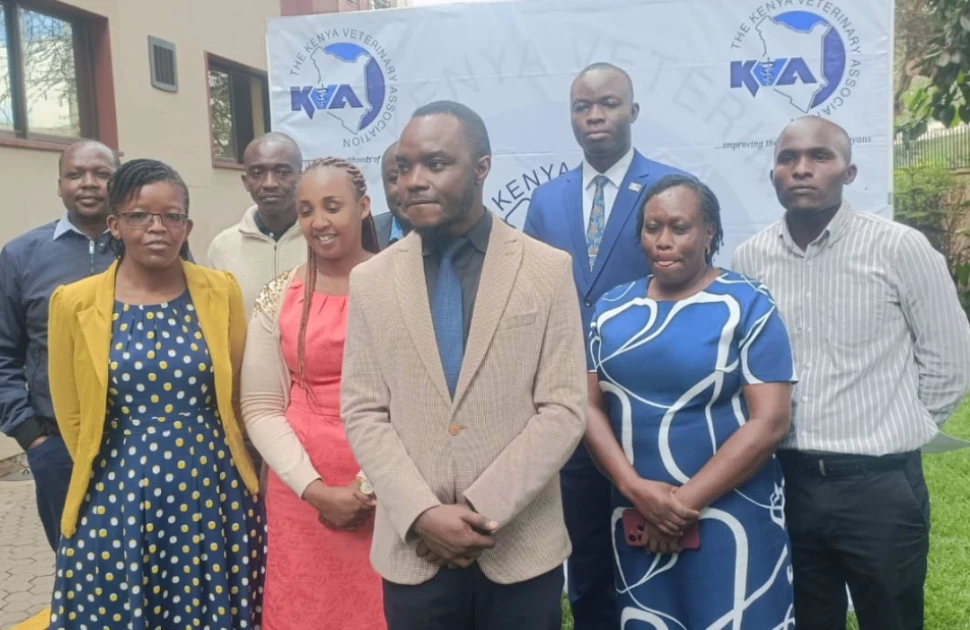Veterinarians now back Gov't livestock vaccination programme after initial opposition

The Kenya Veterinary Association (KVA) officials address the press on November 11, 2025. PHOTO | VINCENT ANGUCHE | CITIZEN DIGITAL

Audio By Vocalize
The Kenya Veterinary Association (KVA) has officially endorsed the ongoing national livestock vaccination programme after initially raising concerns over how it was being rolled out.
KVA National Chairman Dr. Kelvin Osore said the government had
now addressed the key issues that made the association demand a pause.
“We asked the government to stop the exercise earlier this
year until civic education was done, stakeholders were engaged and political
interference reduced. We can confidently say all these have now been
addressed,” Dr. Osore stated.
The four-year vaccination campaign targets 22 million cattle
for Foot and Mouth Disease (FMD) and 60 million sheep and goats for Peste des
Petits Ruminants (PPR).
The aim is to unlock access to premium export markets in
Europe and the Middle East that Kenya has been unable to penetrate due to
disease prevalence and traceability gaps.
“For sheep and goats, we are targeting PPR, while cattle will
be vaccinated twice a year against FMD. These diseases have prevented Kenya
from accessing premium markets,” Dr. Osore said.
The programme will run through an e-subsidy system tied to
animal identification using muzzle-print technology — a traceability method
similar to fingerprinting — to curb misappropriation.
KVA says the vaccines being used are locally manufactured by
the Kenya Veterinary Vaccines Production Institute (KEVEVAPI), with private
manufacturers expected to support supply in the long term.
Dr. Osore urged farmers nationwide to cooperate and bring
their animals for vaccination, saying the initiative could transform Kenya’s
livestock economy.
“The livestock subsector currently contributes about 12
percent to Kenya’s GDP. This program targets moving that contribution to about
20 percent,” he said.
With 70 percent of Kenya’s livestock in arid and semi–arid
regions where crop farming is limited, the programme is expected to especially
uplift those counties.
“For us as KVA, the politics is noise. We now have the
goodwill and the technical systems in place, so we must meet the moment and do
what benefits the farmer and the economy,” Dr. Osore said.


Leave a Comment